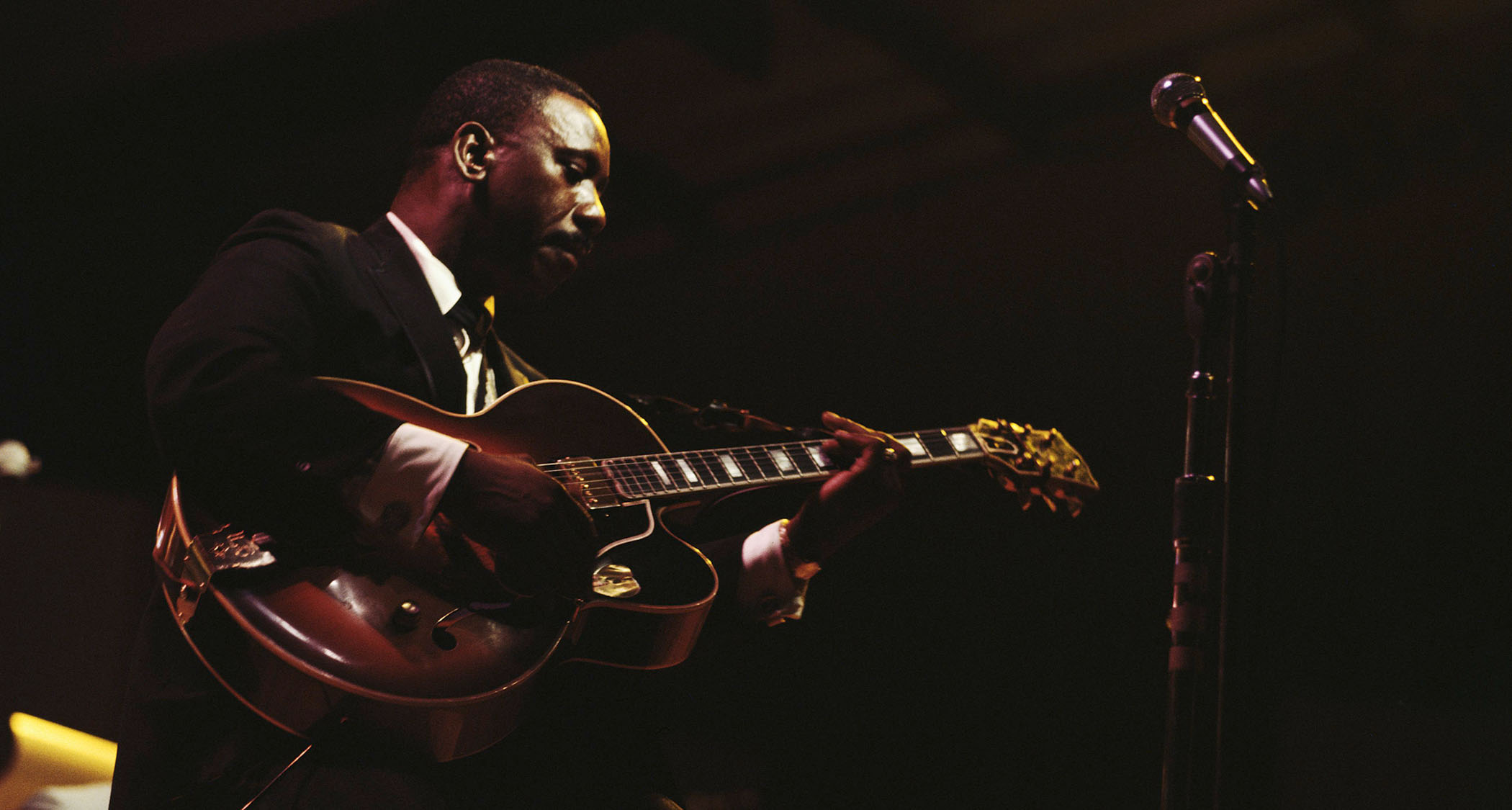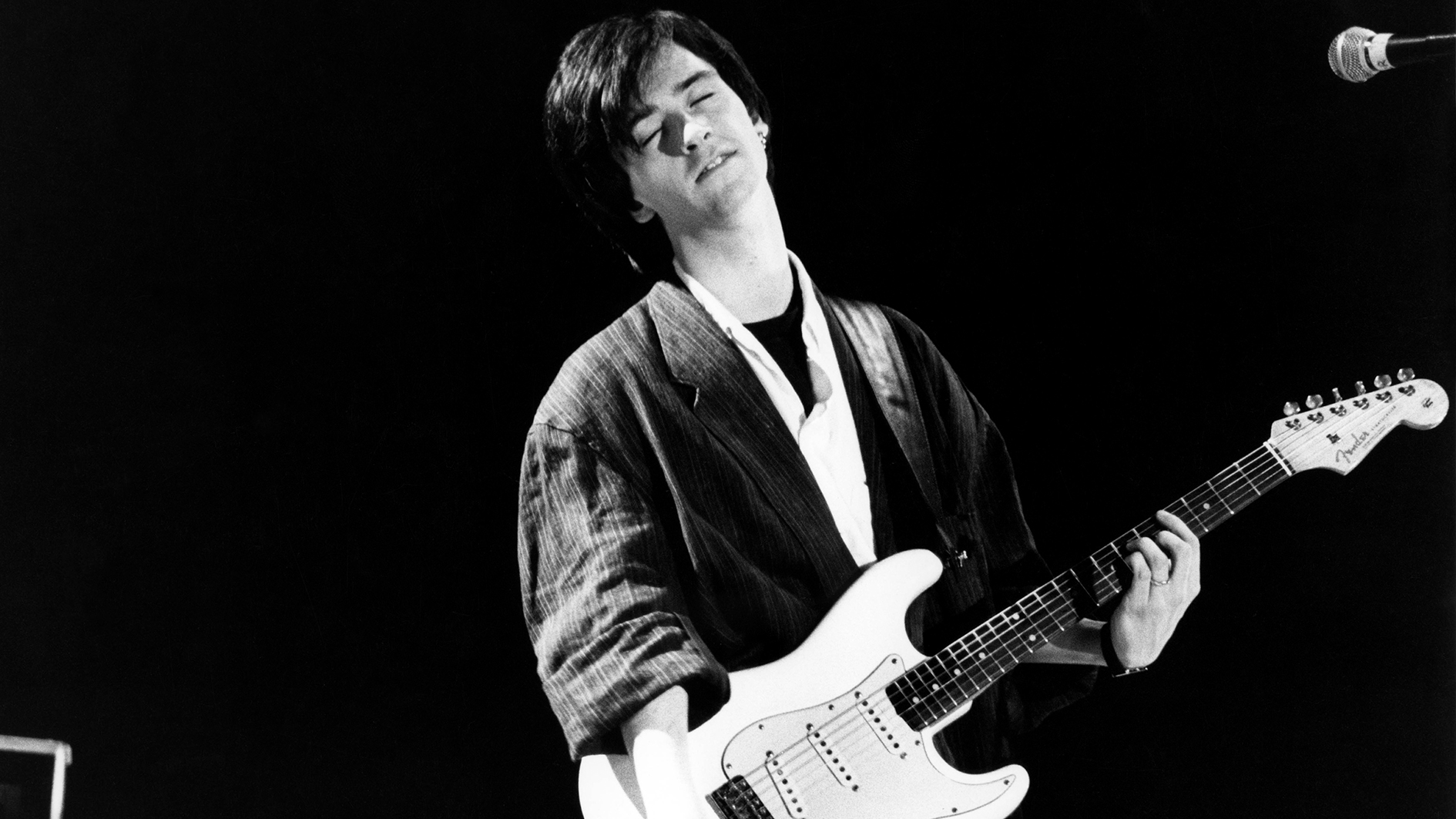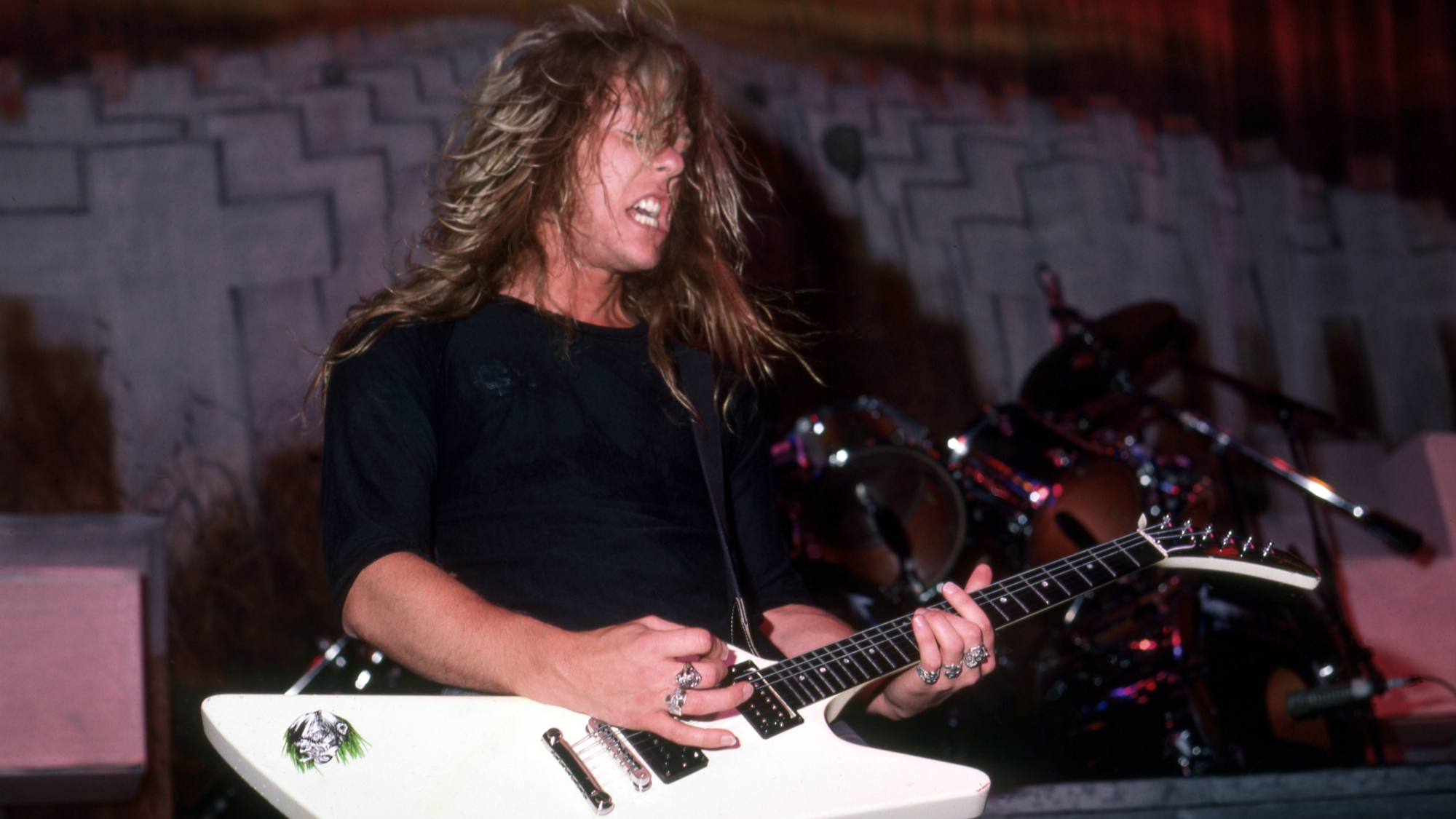Two-Note-Per-String Scale Sequences and Indian-Style Phrasing
Today, we'll continue to work with a scale we covered in a recent column. We'll explore that same scale, the Phrygian dominant, in a two-note-per-string sequence. We'll also add a sitar-style bending phrase.
The notes of the scale are as follows: E – F - G# - A – B – C – D – E
Learning a scale on one or two strings can be a great way to explore different sounds of the scale and phrases, since you are limited to fewer notes. This is a good way to get out of a rut with your playing, especially if you often find yourself relying on what you know and are comfortable with. The Phrygian dominant is a great scale to use for this exercise. It has a cool, exotic sound and a challenging stretch.
In EXAMPLE 1, we will simply ascend the scale (in descending order) using only the G and D strings. This is a great pentatonic-type workout, since the scale has some unusual stretches.
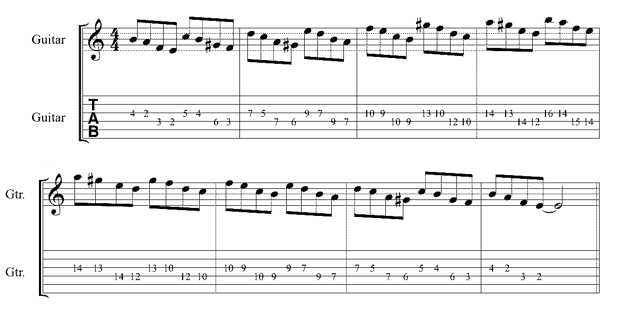
For EXAMPLE 2, we'll add a bend. The bend is reminiscent of a sitar-style bend, whereas the note is very quickly bent to pitch, followed by a pull-off and then descending the phrase for the final two notes on the D string. This is a great exercise for a couple of reasons. It will help with your accuracy in bending up whole and half steps. It also will build up your hand strength as you quickly go from the bend-reverse bend-pull-off to the picked notes on the lower string. Try repeating each section a few times slowly and then faster. You'll start to see that the bend part becomes more challenging the more you do it.
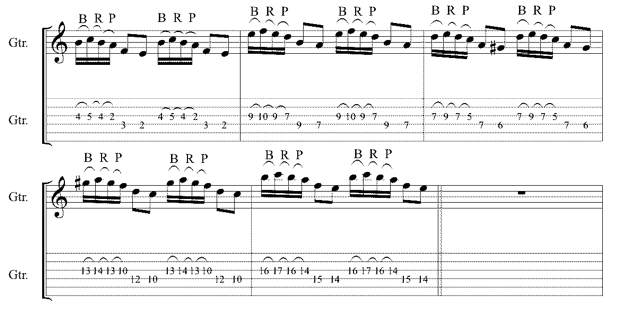
After you get the hang of these exercises, try them with other scales. Jumping around the neck, as in EXAMPLE 2, is a good way to break up patterns so that it doesn’t sound like you're just running up a scale. You're creating a cool melodic sequence that can follow a chord progression, or imply one if you're playing over a melodically static groove.
Steve Booke is a composer for film and TV from the New York area. His compositions range from orchestral to metal to world styles from every corner of the earth. A graduate of Berklee College of Music, Steve has played guitar for more than 27 years. He has recorded 10 albums of his own and has played on countless others. He plays gigs in the NY area and tours the East Coast with a variety of bands. He has performed with Ben E. King and members of Mahavishnu Orchestra. He endorses D'Addario/Planet Waves, Larrivee Guitars, Levy's Leathers, Peavey, Stylus Pick, Finale PrintMusic, Pigtronix, Tech 21, Toontrack, Graph Tech, Seymour Duncan, Waves, Studio Devil and L.R. Baggs. His music is available on iTunes and Amazon. He can be contacted at info@stevebooke.com. Visit stevebooke.com.
Get The Pick Newsletter
All the latest guitar news, interviews, lessons, reviews, deals and more, direct to your inbox!
